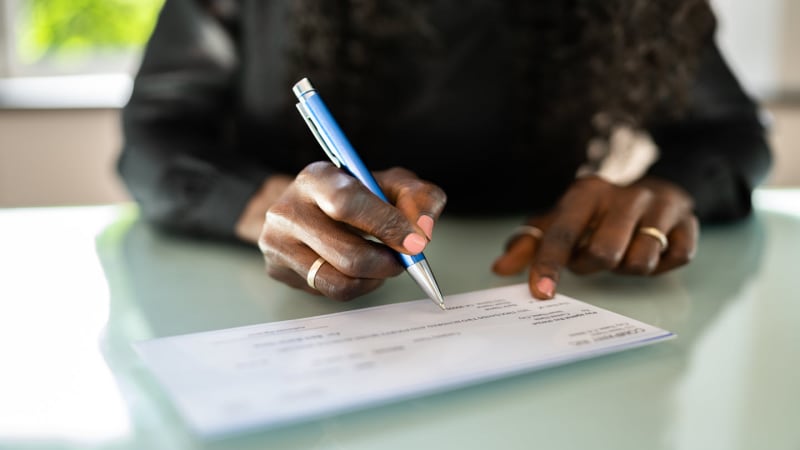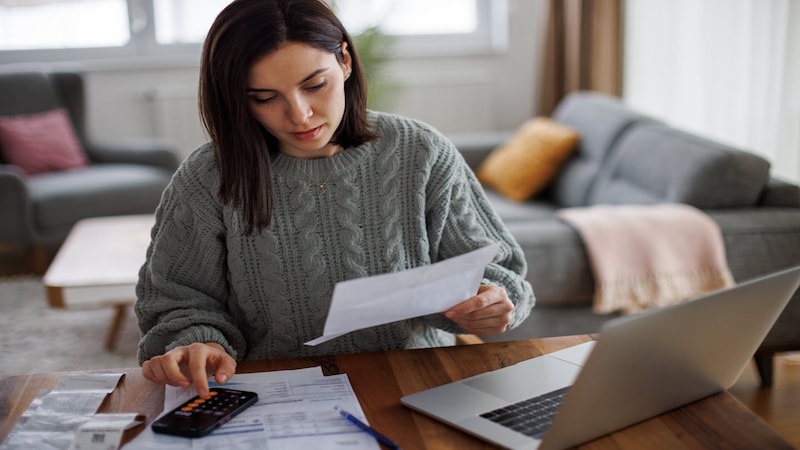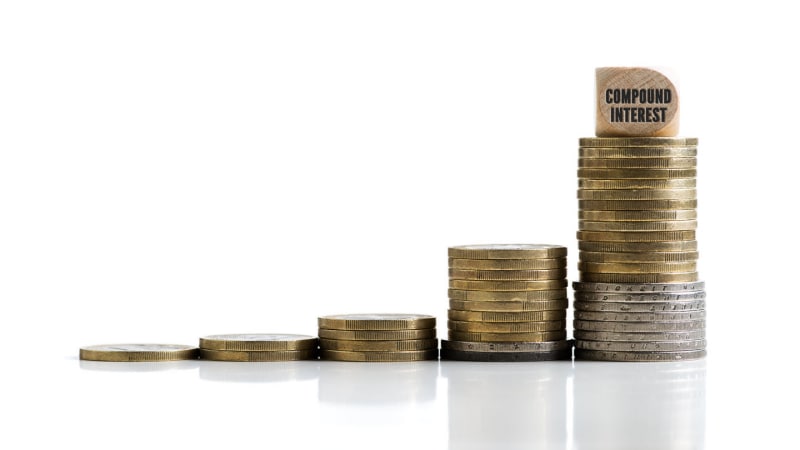How to cash a check without a bank account

Quick insights
- You may be able to cash a check at a bank, retail store, prepaid debit card or through a digital payment app even if you don’t have a bank account.
- Some options may incur fees that can be based on the type of check, the amount of the check and how quickly you want access to the funds.
- Many larger retail and grocery stores provide check-cashing services for a nominal fee.
Cashing a check is a fairly straightforward process when you have a bank account. Banks provide many ways for their customers to cash checks and provide access to those funds available relatively quickly. However, if you find yourself with a check but without a bank account, you may need alternatives.
Read on to learn about different ways to cash a check and what fees may be involved with each option.
Where to cash a check without a bank account
There are multiple ways to cash a check when you do not have a bank account.
Determining the right option for you may include finding one that is cost-effective.
Here are six ways to cash a check and factors you may want to consider when selecting an option.
1. Issuing bank
It may be possible to cash your check at the bank that issued it. The name of the bank is typically printed at the top of the check in the top left- or right-hand corner. Many banks will cash their own checks even if you don’t have an account, provided you have the proper identification.
They may charge a fee for this service. It will vary by bank, but you may find the fees more reasonable than other check-cashing alternatives.
2. Check-cashing retailer
Some retail stores offer check-cashing. There are several big box stores, convenience stores and grocery chains that can cash different types of checks.
You may want to check with the retailer to determine what identification you need to cash your check. Note that retailers might not cash checks over a certain amount.
These retailers will also likely charge a fee. Fees vary based on the retailer and amount of the check. However, it is common that the fees are typically under $10.
3. Prepaid debit card
A pre-paid debit card allows you to load money onto a card that isn’t tied to a bank account. Some of these cards allow users to deposit checks using the mobile app associated with the card.
Because pre-paid debit cards are not linked to a bank, they may charge a fee for depositing checks. Some cards may waive the fee if you wait for the cash to load onto your card but will charge a fee if you want the funds available immediately.
4. Digital payment apps
Some peer-to-peer payment apps may allow you to deposit a check in your account with them. Like many other digital options, you’ll need to endorse the check and take a photo of it to deposit the check.
Like prepaid cards, these apps typically charge a fee to have the funds available to you immediately. Fees vary and may depend on the type of check, the amount of the check and how quickly you want to access the deposit. These apps may also cap the number of check deposits you are allowed to make per month.
5. Signing over to a trusted individual
You do not have to cash your own checks. You can sign over a check and have someone else deposit it. Signing over a check means taking a physical check that is written out to you and endorsing another person to cash or deposit that check.
With this option, you may want to consider finding a trusted friend or family member. You may want to accompany the individual, if possible, should they encounter issues cashing your check. Additionally, some banks might place limitations on access to funds from third party check deposits, which could affect the ability to cash or deposit your check.
6. Check-cashing services
You can also cash checks at a check-cashing service, but this option may have higher fees than other alternatives.
Check-cashing services can be an option for people who don’t have a bank account, a government-issued ID or are under 18 years old. While other alternatives tend to require some form of identification to cash a check, check-cashing services typically (or generally) only require the check itself.
In summary
There are multiple ways to cash a check even if you do not have a bank account. Banks, retail stores, grocery stores, prepaid debit cards, check-cashing services and digital payment apps may allow you to cash a check.
Many of these options will charge a fee that may be based on the type of check, the amount of the check or how quickly you need access to the funds. If you have a trusted friend or family member, you can also sign the check over to someone else and have them cash it for you.
These options may be good short-term solutions, but for many people, having a bank account may provide the best long-term check cashing solution.



